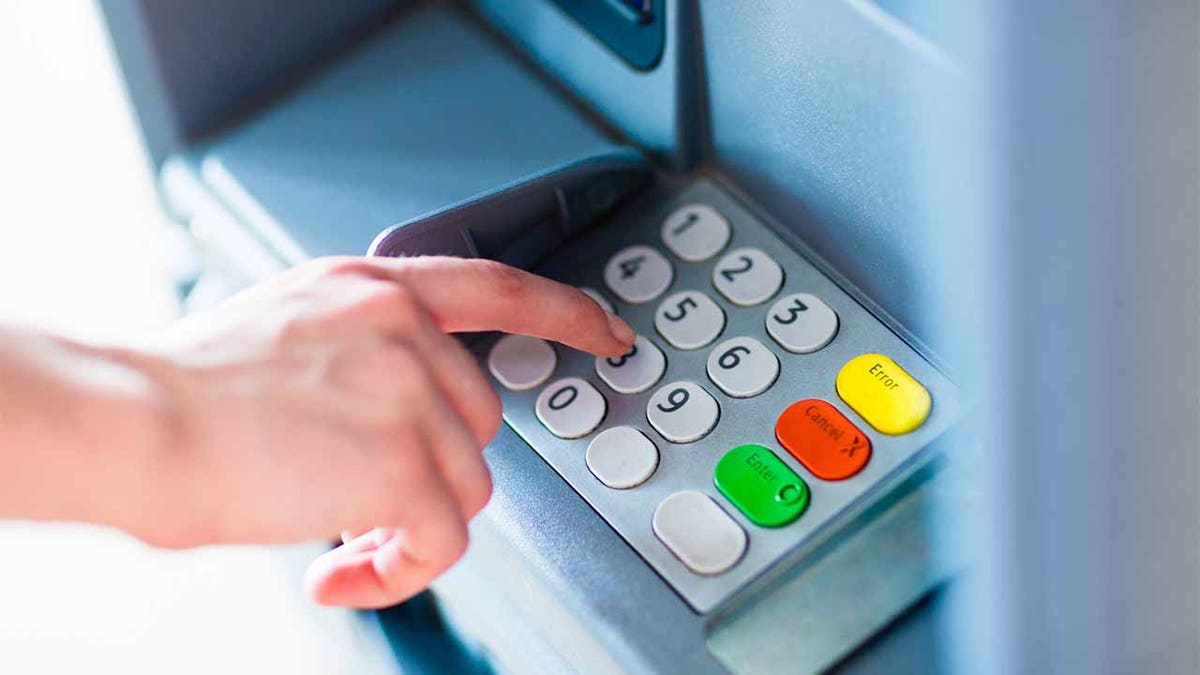Fox News Flash top headlines for July 8
Fox News Flash top headlines are here. Check out what's clicking on Foxnews.com.
Authorities in Baltimore say the city has been experiencing an upward trend in ATM thefts as more and more criminals are drawn to the "low-risk, high-reward" heists.
The thefts have taken place primarily in low-income neighborhoods throughout Maryland, but are especially centered around Baltimore, police say.
“It started out probably as one crew, but I think word got out on the streets that this was a low-risk, high-reward thing,” said Baltimore Police Lt. Col. Kevin Jones, who helps lead the patrol division.

A person enters a passcode for a money transfer on an ATM/bank machine keypad.
The ATM thieves carry out their operations quickly, prying open the locks, before lifting the machines into trucks or vans -- that are often stolen vehicles -- before fleeing the scene, The Baltimore Sun reported.
“They are fast,” Steve Seo, 61, whose liquor store’s ATM was stolen, told The Sun. They look like professionals. They know what they’re doing.”
TEXAS CLERK DODGES BULLET, FATALLY SHOOTS ROBBERY SUSPECT TRYING TO PASS COUNTERFEIT BILL: POLICE
Many stores are equipped with bulletproof barriers to protect their cash and employees, but ATM machines are accessible to customers and sit in common areas, making them a vulnerable target. Some store owners have taken to emptying the machines nightly to limit potential losses.
Criminals are likely drawn to stealing ATMs because they are classified as property crimes, which receive less punishment than holding up a bank teller by the threat of force.
The theft of ATMs is also a setback for members of low-income communities who rely on the machines for cash and for accessing food stamps.
“A lot of these stores, all of them in low-income areas, people have EBT -- people don’t have bank accounts,” George Sarantopoulos, chairman of the National ATM Council and owner of an ATM business in New York City, said. “ATM is a very huge asset to the low-income areas and a huge asset to these store owners.”
CLICK HERE TO GET THE FOX NEWS APP
Though it has a unit for investigating robberies at businesses, the Baltimore Police Department is having its chief of patrol’s office track trends and collect information, The Baltimore Sun reported.
“We are actively working to close these cases,” Jones added.









































